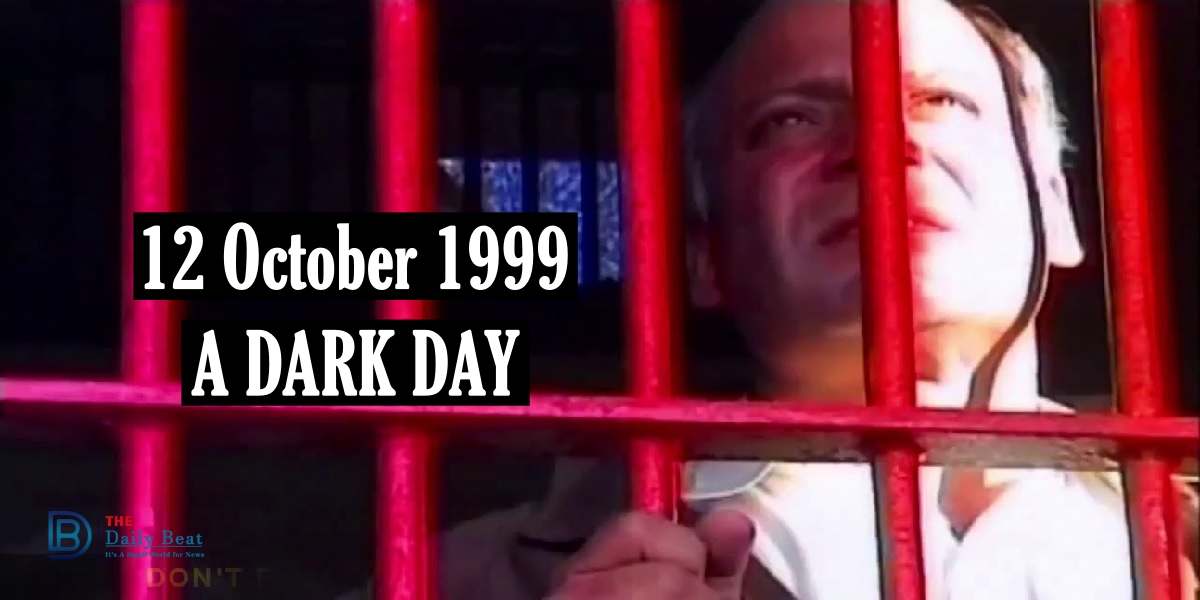A bloodless revolution conducted by military officials at the Joint Staff Headquarters, under the command of General Pervez Musharraf, Chairman of the Joint Chiefs of Staff Committee, resulted in the military taking control of Pakistan in 1999. On October 12, 1999, the instigators overthrew the civilian government of democratically elected Prime Minister Nawaz Sharif and took control of the country. President Pervez Musharraf, serving as Pakistan’s Chief Executive, issued a contentious temporary order on October 14 that effectively suspended the country’s constitution.

Military control was declared after a deterioration of civil-military ties between the Sharif government and Admiral Fasih Bokhari over the chairmanship of the Joint Chiefs of Staff Committee, which led to the imposition of martial law. Conflict between the Sharif administration and Joint Chiefs Chairman General Musharraf reached a boiling point during Prime Minister Sharif’s official visit to Sri Lanka, when he tried to remove General Musharraf from his position as chairman of the Joint Chiefs of Staff (JCS).
At the time, Lieutenant-General Ziauddin Butt, who was then DGISI, was approved for the army chief position in an effort to maintain civilian control over the military. However, senior members of the Joint Staff Headquarters refused to follow the new chain of command and instead ordered the Military Police to detain General Butt and keep him from seizing control of the military. Political observers were taken aback by the coup’s rapidity: within 17 hours of Prime Minister Sharif’s attempts to depose General Musharraf, army leaders had taken control of all major government institutions throughout the country and imprisoned Prime Minister Sharif and his cabinet, which included his brother, as well as other senior officials. Military police seized control of the state broadcaster, radio, and the whole country’s critical communications infrastructure, announcing Sharif’s deposition as president. The Supreme Court of Pakistan, presided over by Chief Justice Saeeduzzaman Siddiqui, upheld martial law based on a “doctrine of necessity,” but limited its duration to three years.
This is the history that we have all read about in books or on the internet. However, Nawaz Sharif has his version, which he shared with the nation in a video.
“I was pressured into sitting in the back seat of a Honda car with a security guard [and another person]. Shehbaz Sharif was also in the car, most likely in the front seat “Nawaz said in the video. He recalled the incident and stated that he was taken to a mess while Shehbaz was taken elsewhere. “Around 2 a.m., General Mahmood Ahmed arrived with General Ali Jan Orakzai and another general. They presented me with an order dissolving the National Assembly and asked me to sign it “remarked the former prime minister
Nawaz recalled the letter’s contents, which stated that the prime minister was willingly dissolving the assembly and advising the president to do so.
“I asked them why you brought this order to me, Nawaz remembered asking the generals. They said I should sign it and consider myself free. Otherwise, I would have had to bear the consequences of not signing the order “he said in the video, adding that they were speaking arrogantly. “I told them I never considered dissolving the assembly,” he said. The generals ignored Nawaz’s refusal and told him he had to sign the papers.
“Over my dying body, I told them.” “Over my dead body!” were my exact words. “I will not sign this document.”
Following the circulation of this film, the hashtag #Overmydeadbody quickly became a top trend on Twitter. People used the hashtag to express their feelings on the video.
I have a question about all of this. I have always regarded and will continue to respect and embrace Nawaz Sharif as a hero for conducting atomic testing on Chaghi in 1998 against world pressure. All of this is correct. But what about the long-standing corruption accusations filed against Nawaz Sharif and his family? Why are they still unable to establish their innocence, although having a good memory? Documents proving their innocence should also be available. Why haven’t the Panama Papers been resolved? Why is Sir Nawaz Sharif not returning to Pakistan to save the country?
The 12th of October 1999 is remembered as a dark day in history. We hope and pray that a day like that never comes again when democracy is brutally murdered.

Author is a Lahore College for Women University graduate. She writes with zeal and believes that there is nothing greater than words to express herself.
